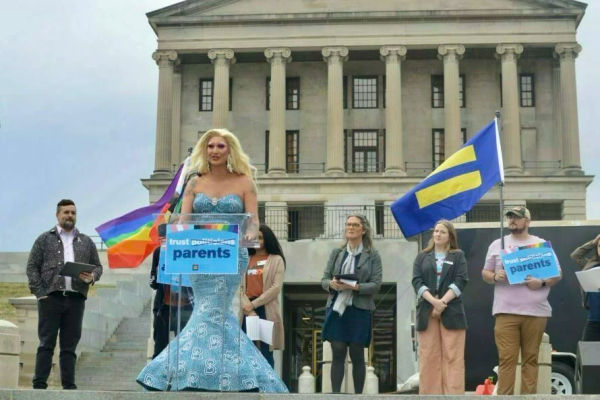As you may know, Tennessee has recently passed a bill banning performances featuring "topless, go-go or exotic dancers, strippers, or male or female impersonators," on public property. Although the bill does not specifically target drag performers, Conservative Republican lawmakers, such as Chris Todd, who introduced the bill, has specifically named drag shows as performances that expose children to sexual content.
Since Tenn. passed the bill, drag performers have been the victims of increased prejudice and hate, such as the idea that drag performers are child predators who are grooming children. This has also led to drag queens being harassed, as they were when Neo-Nazis protested outside of an Ohio drag story hour, which is when drag queens read stories to children.
Shortly after this bill was passed, I attended the last show of “Trixie and Katya Live” in Durham, North Carolina. Trixie and Katya are two very popular drag queens who rose to fame on season seven of the drag competition show “RuPaul’s Drag Race.” Since then, the two have embarked on a successful collaboration via a podcast, “The Bald and Beautiful with Trixie Mattell and Katya Zamo,” and a YouTube series entitled “UNHhhh,” among other projects. They embarked on their tour in February 2023.

The show included an extravagant plot, in which Trixie and Katya are unable to agree on what they should do for their performance, get into a fight and refuse to work together, put on their own performances, and then in the end, they have to come together to defeat the evil fictional financial technology company “Klarma.” The show was very comedic, and also had several costume changes and lipsyncing performances with four backup dancers. Much of the show embodied the art of drag: extravagant costumes and makeup, dramatic acting, and competitions based on lipsyncing.

The audience was filled with adults, most of whom were openly LGBT+, who all came together for a night of laughter and entertainment. At the end of the night, Katya remarked that showing monetary support for two drag queens amongst legislative bans was a strong form of political protest by the audience.
As my friend and I enjoyed the show, often loudly laughing and being stunned by its intricacies, I could not stop thinking about how harshly conservative politicians have been condemning drag. Who is being harmed by this show of joy and community?
As S.C. moves to enact their own legislation restricting drag performances, I urge you to consider what these politicians are not telling you. Is the goal to protect children, or to censor LGBTQ adults?
